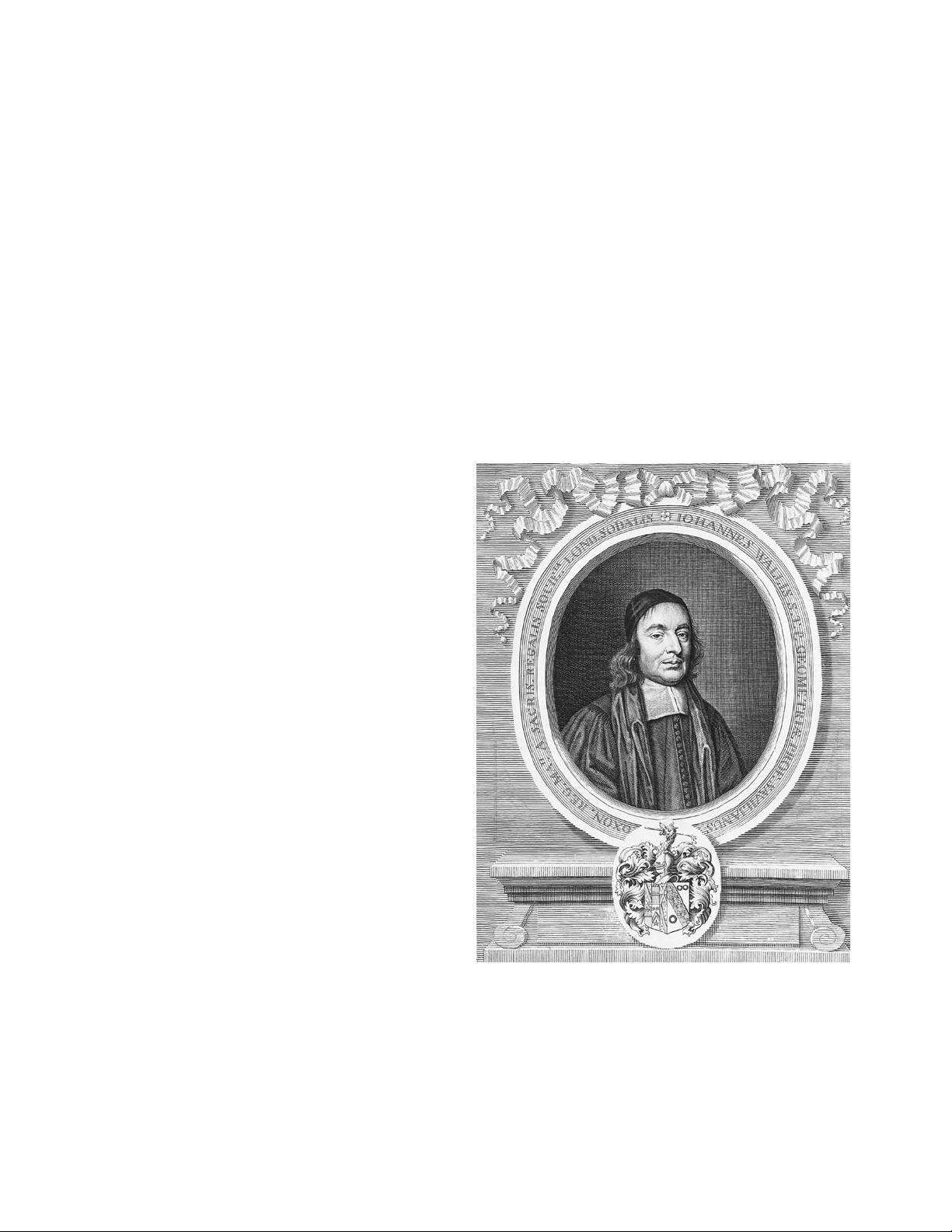
Wallis, John (1616–1703) British Calculus Born on
November 23, 1616, in Kent, England, mathematician
John Wallis is remembered for his substantial contribu-
tions to the early development of
CALCULUS
, which laid
the groundwork for S
IR
I
SAAC
N
EWTON
(1642–1727)
to later fully develop the subject. His contributions to
mechanics also helped Newton formulate the laws of
motion. He was considered the leading English mathe-
matician of his time.
Wallis had little exposure to mathematics during
the early part of his life. He received a bachelor of arts
degree in 1637 and a master’s degree in 1640 in theol-
ogy and was ordained as a minister in 1640.
By happenstance, while working as chaplain during
the time of civil unrest in England, Wallis discovered
that he could easily decipher the coded messages parish-
ioners shared with him. This demonstrated a talent for
mathematical thinking, and Wallis was soon hired by
the Parliamentarians to decode Royalist messages.
During this time Wallis read the works of
J
OHANNES
K
EPLER
and B
ONAVENTURA
C
AVALIERI
and
others, and developed an interest to expand on the
ideas of infinitesimal calculus as developed by these
authors. In 1656 Wallis wrote his influential text Arith-
metica infinitorum (Infinite series), which contains,
among many things, his famous product formula for .
Wallis also studied and wrote on the topics of
CONIC
SECTIONS
and
ALGEBRA
. He was the first to explain
the meaning of zero, negative, and fractional powers
π
–
2
528
W
John Wallis, an eminent mathematician of the 17th century,
used infinitesimals to develop important techniques of compu-
tation. Sir Isaac Newton built much of his development of cal-
culus on Wallis’s ideas. (Photo courtesy of the Science
Museum, London/Topham-HIP/The Image Works)